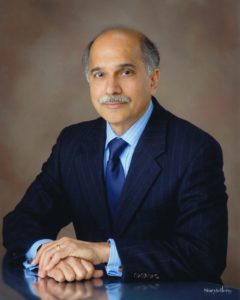Nothing as the Foundation | Unveiling the Quantum Enigma | How Yale’s Introduction to Quantum Mechanics Reveals That “Nothing” Truly Is the Source of Everything
 Quantum mechanics, as introduced by Dr. R. Shankar and expounded upon in Yale’s acclaimed course, challenges our deeply held materialistic notions. At SpeciesUniverse.com, we see the quantum realm as a portal to understanding that the fabric of existence is not built on tangible matter alone but on the interplay of probabilities, uncertainties, and what might be perceived as “nothing.” This groundbreaking perspective invites us to reframe our understanding of the universe, where even the void becomes a source of creation.
Quantum mechanics, as introduced by Dr. R. Shankar and expounded upon in Yale’s acclaimed course, challenges our deeply held materialistic notions. At SpeciesUniverse.com, we see the quantum realm as a portal to understanding that the fabric of existence is not built on tangible matter alone but on the interplay of probabilities, uncertainties, and what might be perceived as “nothing.” This groundbreaking perspective invites us to reframe our understanding of the universe, where even the void becomes a source of creation.
In his lectures, Dr. Shankar dissects the core principles of quantum mechanics—from wave-particle duality to the uncertainty principle—revealing that particles do not exist in a singular, fixed state until measured. This fundamental idea, echoed throughout the Yale course, implies that reality itself is contingent upon observation. As we embrace these concepts, we start to see that what we often dismiss as “nothing” is in fact a dynamic and essential aspect of existence, providing a stark contrast to the deterministic view of classical physics.
The notion that nothingness is the source of everything dismantles the materialistic perspective that has long dominated scientific thought. Instead of a universe built from immutable matter, quantum mechanics presents a cosmos where the absence of fixed entities forms a fertile ground for potentiality. This shift is revolutionary—it suggests that the randomness and indeterminacy at the quantum level are not flaws in our understanding but are, in fact, the very mechanisms by which the universe evolves. In this way, quantum mechanics has no “footing” for the traditional materialist viewpoint, leaving it teetering on a foundation that is, quite literally, nothing.
Delving deeper, the Yale course highlights how the mathematical formalisms of quantum theory provide a language to describe phenomena that defy classical explanation. Through complex equations and probabilistic interpretations, Dr. Shankar demonstrates that the quantum world is not governed by fixed laws in the conventional sense, but by probabilities that collapse into reality upon observation. This paradigm shift invites us to explore a universe that is as much about possibility as it is about certainty, a realization that resonates profoundly with the ancient traditions which have long held that the source of everything lies beyond the observable.
What emerges from this exploration is a unifying perspective between the insights of modern science and the wisdom of traditional philosophies. Both suggest that the ultimate truth of our existence may be found in the recognition that the universe is born from what appears to be nothing. This understanding encourages us to pursue deeper inquiry into the quantum realm, where every observation is a testament to the dynamic and fluid nature of reality. As we continue to unravel these mysteries, it becomes clear that our journey into quantum mechanics is not just a scientific expedition—it is a philosophical quest that challenges our perceptions of existence.
Moreover, the pedagogical approach of the Yale quantum mechanics course provides clarity by breaking down seemingly abstract ideas into comprehensible concepts. Dr. Shankar’s clear exposition transforms daunting mathematical theories into an accessible narrative, making it possible for even those new to the subject to appreciate the profound implications of a universe emerging from nothing. This accessibility is vital for anyone, including us here at SpeciesUniverse.com, as we strive to explore and articulate the idea that the void is the fertile ground from which all creation springs.
In conclusion, by revisiting Dr. R. Shankar’s insights and the robust teachings of the Yale course, we are invited to reconsider the very nature of reality. Quantum mechanics does not simply challenge the materialistic narrative—it provides a revolutionary framework that posits nothing as the true source of everything. With no traditional “footing” to stand on, materialistic sciences must reckon with the counterintuitive, yet profoundly enlightening, implications of quantum theory. This is the starting point for our ongoing exploration at SpeciesUniverse.com, where science, tradition, and the quest for deeper understanding converge.
Quantum Mechanics I: The key experiments and wave-particle duality
Key Takeaways:
- Quantum Foundations: The principles of wave-particle duality and the uncertainty principle reveal that particles exist in a state of probability until observed, suggesting that what appears as “nothing” is a dynamic canvas for creation.
- Philosophical Unity: Both modern quantum mechanics and ancient traditions converge on the idea that the void or nothingness is the source of all existence, challenging conventional materialistic perspectives.
- Educational Clarity: Yale’s quantum mechanics course, led by Dr. Shankar, breaks down complex concepts into accessible ideas, making it easier to appreciate the revolutionary notion that nothing truly underpins everything.
“In the quantum world, the void is not emptiness but a vibrant field of potential, where the act of observation transforms possibility into reality.”
Call to Action:
Join us at SpeciesUniverse.com as we delve deeper into the mysteries of quantum mechanics. Explore our curated resources, engage in thought-provoking discussions, and challenge the conventional wisdom of materialism. Let’s redefine the very essence of existence—together, we can discover that nothing is indeed the source of everything. John, and all fellow seekers, your journey into the quantum realm starts here.
John
~Comments always welcome…
References:
- CTL.Yale.edu/using-technology/online-learning (Website)
- YaleCourses (YouTube Channel)

Leave a Reply